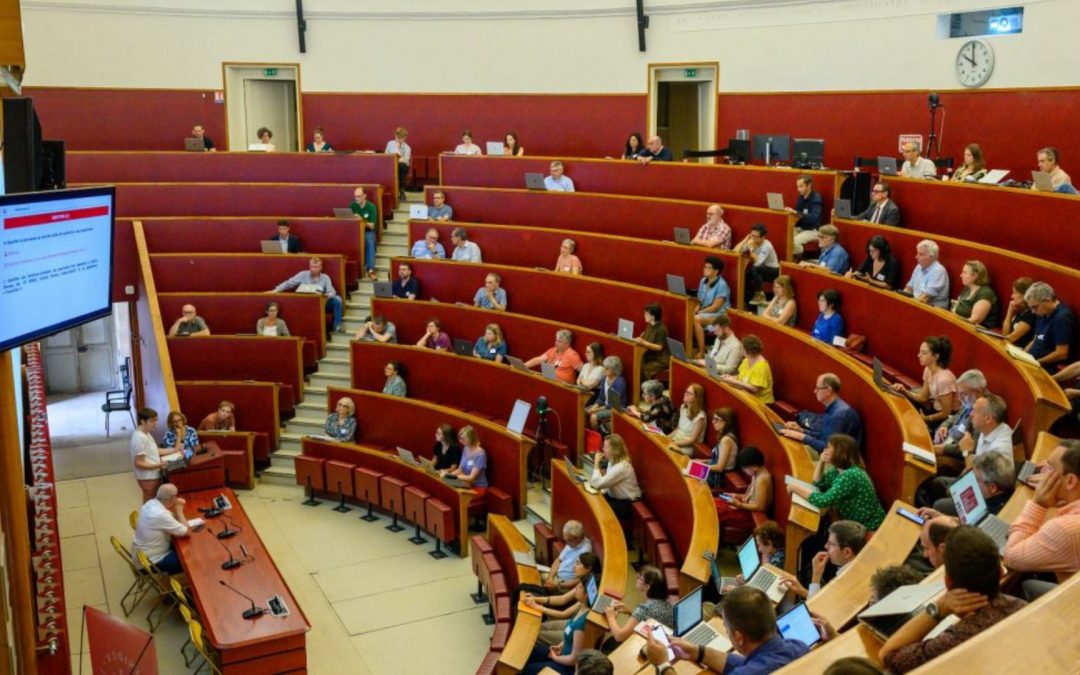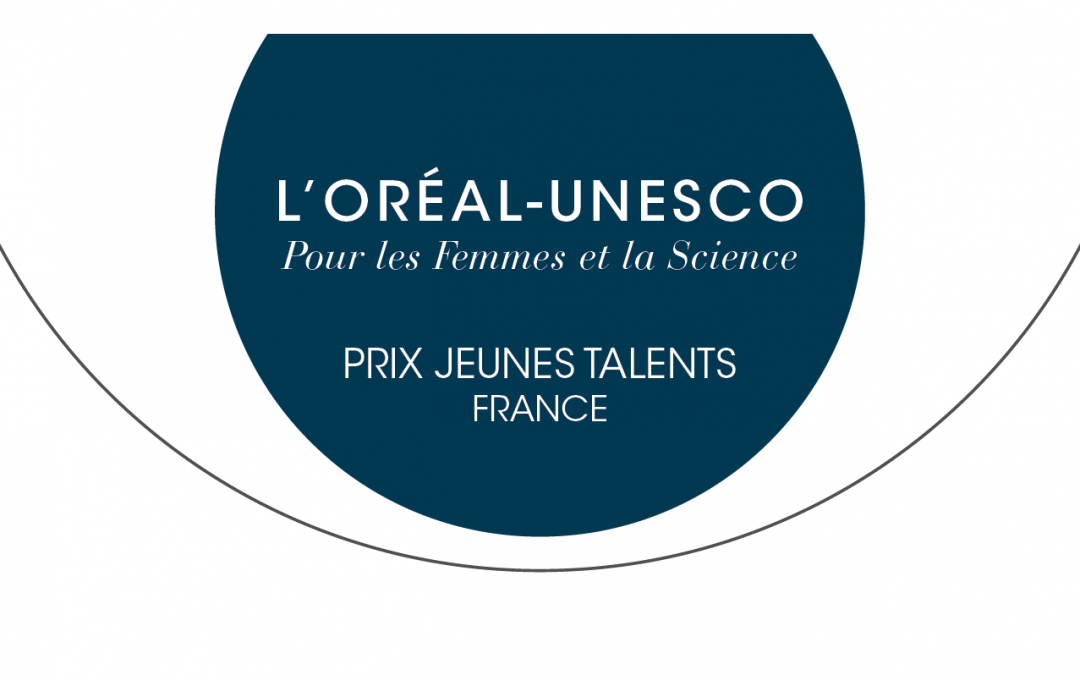Politique internationale
La Faculté des Sciences met depuis longtemps en avant les échanges internationaux et l’ouverture sur le monde dans ses activités de formation et de recherche. Elle a tissé des liens sur tous les continents et elle a pour ambition d’ouvrir ses étudiants de licences et de masters aux avancées de la recherche au plus haut niveau international.

Politique internationale
La Faculté des Sciences joue un rôle important au sein de l’Université Paris Cité avec ses 44 parcours de masters dont la plupart sont ouverts à l’international et proposent des parcours en anglais. Elle est impliquée dans 16 des 21 Écoles universitaires de recherche (EUR) du programme SMARTS-UP qui proposent une formation par la recherche, fortement interdisciplinaire et très tournée vers l’international grâce à des aides à la mobilité ou des doubles diplômes avec des universités étrangères.
La Faculté des Sciences élargit cette ouverture à une éducation internationale grâce à des partenariats stratégiques avec les universités membres de Circle U, l’Université de Science et Technologie de Hanoi (USTH) et bientôt l’Université d’Ottawa. Elle a noué des accords bilatéraux avec une quarantaine de partenaires en Europe (Erasmus+ et Erasmus Mundus) et dans le monde.
La Faculté a pour ambition d’amplifier les relations internationales de ses formations professionnalisantes, en particulier au sein de l’école d’ingénieur Denis Diderot (EIDD), dans le Bachelor universitaire de technologie (IUT Paris Pajol) et en proposant plusieurs diplômes universitaires internationaux (DIU). Elle est attentive au développement de stages dans les entreprises françaises présentes à l’étranger et à nouer des liens forts avec d’autres écoles d’ingénieurs à l’étranger comme avec l’ENIT de Tunis. Elle explore aussi des pistes ouvertes à l’étranger par les réseaux associant les mondes académiques et les entreprises (ex: IRD).
En recherche, les 42 unités de recherche rattachées à la Faculté des Sciences (souvent en co-tutelles avec le CNRS, l’INSERM, le CEA, l’Institut Pasteur, etc.) ont noué de très nombreuses collaborations dans le monde entier. La Faculté met cet ample réseau au service de la formation par la recherche internationale de ses étudiants de master pour leur proposer des stages dans des laboratoires étrangers et en aidant financièrement chaque année une vingtaine d’entre eux à aller travailler dans ces laboratoires. La Faculté a pour objectif que chaque étudiant en Sciences ait pu suivre au moins un semestre ou un stage à l’étranger à l’issue de son cursus universitaire.
Les écoles doctorales de la Faculté aident les doctorants à acquérir une expérience à l’étranger grâce à une bourse de mobilité dans un laboratoire étranger pendant leur thèse et/ou une participation à des écoles internationales thématiques. Les écoles doctorales accueillent également de nombreux étudiants étrangers en contrat doctoral.
La Faculté des Sciences accompagne les échanges scientifiques par-delà les frontières en participant à l’organisation de colloques internationaux et en invitant chaque année une quarantaine de chercheurs étrangers à venir dans ses laboratoires pour plusieurs semaines. Elle soutient des programmes exploratoires de recherche avec plusieurs partenaires privilégiés (les universités de CircleU, l’Université Nationale de Singapour, le King’s College de Londres, l’Université de Sciences et Technologie de Hanoï). Une équipe dédiée de la Faculté aide les équipes de recherche au montage de projets en réponse à des appels internationaux.
Ouverte sur le monde, la société et la culture scientifique, la Faculté est attachée à l’importance du plurilinguisme, et notamment du bilinguisme français-anglais, dans l’apprentissage des sciences et pour la diffusion des connaissances scientifiques. Le dialogue avec le grand public, les décideurs et le monde socio-économique est au cœur de la démarche adoptée en lien avec le label « Science avec et pour la société » autour de grands débats et de publications mettant en lumière les dernières avancées des connaissances sur des sujets clés pour la société (ex: The Conversation).
International policy
The Faculty of Science has long promoted international exchanges and openness to the world in its training and research activities. It has forged links on all continents and its ambition is to open up its bachelor’s and master’s students to research advances at the highest international level.
The Faculty of Science plays an important role within the Université Paris Cité with its 44 master’s courses, most of which are open to international students and offer courses in English. It participates to 16 of the 21 Graduate Schools of the SMARTS-UP programme that offer training through research. This training is highly interdisciplinary and very internationally oriented through mobility grants or double degrees with foreign universities.
The Faculty of Science is expanding this access to international education through strategic partnerships with the member universities of Circle U, the University of Science and Technology of Hanoi (USTH) and soon the University of Ottawa. It has established bilateral agreements with some forty partners in Europe (Erasmus+ and Erasmus Mundus) and worldwide.
The Faculty’s ambition is to expand international relations in its professional training courses, in particular within the Denis Diderot School of Engineering (EIDD), in its Bachelor of Technology degree (at IUT Paris Pajol) and by proposing several international university diplomas (DIU). It is attentive to the development of internships in French companies stationed abroad and to forging strong links with foreign engineering schools, such as the ENIT in Tunis. It also explores the avenues opened up abroad by networks associating the academic world and companies (e.g. IRD).
In research, the 42 research units attached to the Faculty of Science (often under joint supervision with the CNRS, INSERM, CEA, Institut Pasteur, etc.) have established numerous collaborations throughout the world. The Faculty puts this extensive network at the service of its master’s students to find internships in foreign laboratories to expose them to international research. It financially helps about twenty of them each year to stay and work in these laboratories. The Faculty’s objective is that each student in Science should have been able to follow at least one semester or one internship abroad at the end of his/her university education.
The Faculty’s doctoral schools help PhD students to gain experience abroad through a mobility grant in a foreign laboratory during their thesis and/or participation in thematic international schools. The doctoral schools also welcome many foreign students on doctoral contracts.
The Faculty of Science supports scientific exchanges across borders by participating in the organisation of international symposia and by inviting each year some forty foreign researchers to stay in its laboratories for several weeks. The Faculty supports exploratory research programmes with several privileged partners (the universities of Circle U, the National University of Singapore, King’s College London, the University of Science and Technology of Hanoi). A dedicated team in the Faculty assists research teams in setting up projects in response to international research calls.
Open to the world, society and scientific culture, the Faculty is committed to the importance of multilingualism, and in particular French-English bilingualism, in the learning of science and in the dissemination of scientific knowledge. Dialogue with the general public, decision-makers and the socio-economic world is at the heart of the approach adopted in connection with the « Science with and for society » label, promoting large debates and publications highlighting the latest advances in knowledge on key issues for society (e.g. The Conversation).
Vice-doyenne Relations Internationales
Valérie SERRE
À lire aussi

Découvrez les lauréats de l’AAP colloques et conférences 2026

Téléchargez MyUPCité, la première version de l’application étudiante de l’université

Prix Jeunes Talents France L’Oréal-UNESCO Pour les Femmes et la Science : Appel à candidatures 2026

